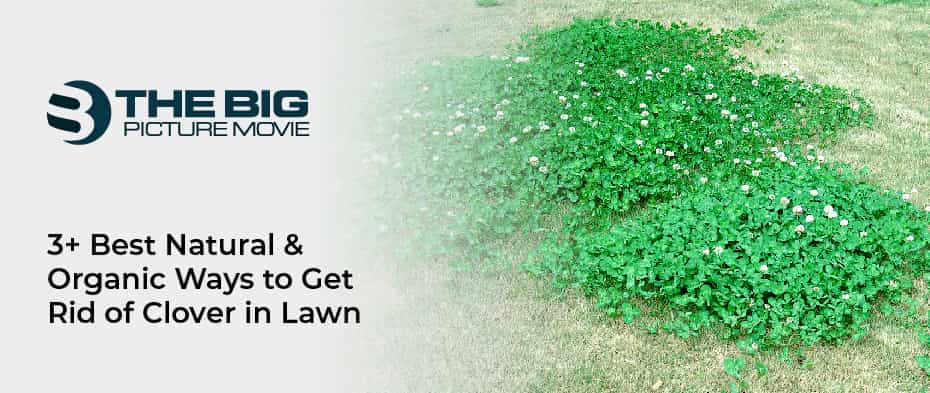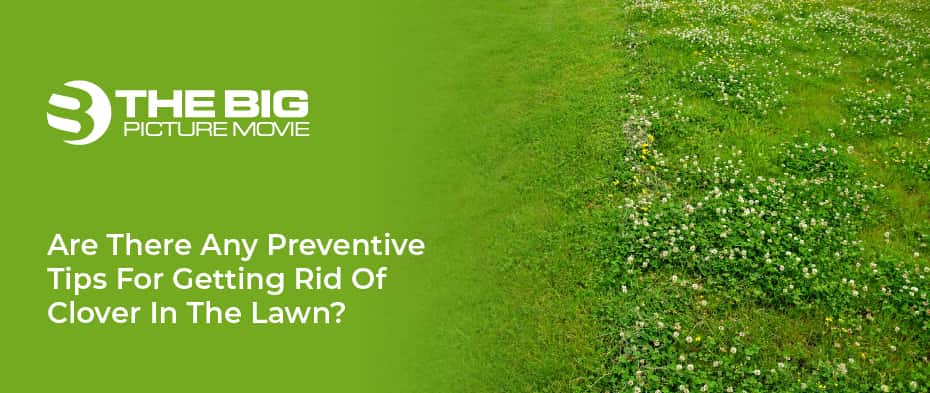
How to Get Rid Of Clover in Lawn (Easy Remedies)
How to get rid of clover in the lawn? If you are facing an issue with this aggressive weed, then here you will know all the remedies for eliminating it with some preventive tips.
Clover is the most common lawn weed and the toughest to control because of its aggressive spreading habit that makes one plant multiply in size. In spite of its positive uses in the landscape, like food for pollinators and wildlife, it considers an irritant weed. It also has the ability to generate its own nitrogen, which makes it flourish in an undernourished lawn.
Most of its kinds, like white clover, are perennials that grow more rapidly as time passes. Moreover, its self-seeding habit can appear anywhere in an area that was previously free from clover. So, move to the next part to see the causes and get rid of them with tips for future prevention as well.
What Are The Causes Of Clover On Lawn?
Among most of the reasons, there are three main reasons that make clover sprout up on your lawn. Hence, let’s see the causes:
- Soil pH: The clover’s growth depends on soil pH. Mostly, the lawn pH is between 6.0 and 7.0. It seems more complex for grass to grow and much easier for clover if your lawn’s soil is too acidic. Fortunately, you can also use soil alterations like lime to balance out the pH.
- Nitrogen Levels: Clover flourishes in poor soil because of poor nitrogen levels. As nitrogen is an essential ingredient for soil to grow well. However, clover can obtain nitrogen from the air when necessary and will effectively produce its own fertilizer.
So, if you have used too much fast-acting fertilizer, then your soil may be low in nitrogen. At the same time, they promote rapid grass growth, so they can eventually lower your soil quality. So it is good to use organic fertilizer like manure or corn meal to avoid this problem.
- Compacted soil: it prevents your grass from getting the nutrients it needs, including nitrogen, air, and proper watering. Fortunately, you can break up compaction with a spike or core oxygenate.
3+ Best Natural & Organic Ways to Get Rid of Clover in Lawn

There are the following top ways to eradicate cloves from the lawn: So, before using any chemical remedy, try these natural solutions:
- Get rid manually
- Deprive of oxygen
- Vinegar
- Organic herbicide
1. Rip It Out By Hand
If your yard has small patches of clover, don’t give them a chance to spread. You can gently remove the small clumps by losing the soil with a spade or with your fingers and then pulling the clover out. Make sure to remove all of the roots because there is a chance that they will quickly return if any roots remain. This is a simple, do-it-yourself method for naturally removing clover without harming your grass.
2. Take Away Its Oxygen Supply

Another way to eliminate clover in your lawn is by blocking oxygen and sunlight. Put the plastic sheet or garbage bag on top of the clover, securing the corners so air will not blow away the sheet. This way, you can kill the weed in a few weeks but utilize this method only on large clover patches. Otherwise, this approach will experience collateral damage to the surrounding grass as well.
3. Getting rid by using Vinegar on Lawn
It is better to create your own non-toxic natural weed killer home remedy:
- Combine one cup of vinegar with a cup of water and one drop of dish soap.
- Put the mixture in the spray bottle and spray it onto the clover patches.
- Spray the mixture for a couple of weeks to kill off the clover completely.
Be careful while spraying as it may damage the grass so take care of it. But it is a more environmentally friendly option as compared to chemical-based sprays or broadleaf weed herbicides.
5. Hit Back with Organic Herbicide

If you don’t want to take the risk of damaging any surrounding grass, stay away from the clover patches. So it is better to use the herbicide A.D.I.O.S. (Advanced Development In Organic Solutions), an organic herbicide that removes clover and does not harm healthy grass.
A.D.I.O.S is a non-toxic, odorless, selective weed killer that is safe to use around pets, children, and livestock farms. This weed killer also works to get rid of dandelions, yellow mustard, ground ivy, and other pesky weeds. It also might help you fight back against things like ragweed, buckthorn, poison ivy, and similar invasive weeds. You can also order A.D.I.O.S online or pick them up in person at your local garden or home improvement store.
Are There Any Preventive Tips For Getting Rid Of Clover In The Lawn?

Yes! Some useful preventive tips are here to limit clover’s growth and prevent them from sprouting. So, let’s go through them:
1. Make Use of Nitrogen-Rich Fertilizer
Clover blossoms in soil with low levels of nitrogen. A simple killing strategy is using a nitrogen-rich fertilizer on the clover patches. These tips will prevent it from growing and spreading.
A quick and affordable option is to apply a fast-release fertilizer. This is primarily suggested if you have a lot of clovers to throw out. Or else, you can also use an organic fertilizer like:
- Bone meal
- Blood meal
- Earthworm castings
- Cow manure
- Liquid kelp
- Guano
Organic fertilizer is slower in killing the clover but better for the environment. Fast-release fertilizer will reduce soil quality eventually. You can apply it to the problematic clover areas or spread it to cover the entire yard. You can easily find fast-release and organic fertilizer at most garden and home improvement stores.
1. Think About Using Corn Gluten.
Corn gluten can slow down clover growth without damaging nearby plants. This is because it releases organic dipeptides into the soil, dries clover seeds, and makes them difficult to sprout. But make sure that doesn’t apply when you recently seeded your grass, as it may also restrain the sprouting of grass seeds too.
Nevertheless, it does not affect the living grass growth. However, the most common way is to spread the corn gluten at about 20 pounds per 100 sq ft of lawn. After that, apply the water well and wait for it to dry naturally. Hence, you can easily get it from a garden center or order it online.
2. Adjust Your Mowing Height
Well, the main point for Clover is the reason for her upbringing. Actually, it prefers to grow in areas where the grass is less than 3 inches high. So, it is better to set your mower to 3 inches or higher, and the growth of your grass will deter the clover from growing and spreading. In this setting, higher grass will block the sunlight exposure to the clover. This helps to deter the clover from sprouting throughout the lawn.
3. Use Appropriate Water
One of the main secrets to controlling the speed of clover is maintaining the ideal moisture level. Wet grass is the ideal habitat for weed seed germination. Because dry grass seems stressed out and also invites weeds. But it depends on your soil and grass species to get the right amount of water.
Gardening pros suggest that you monitor your lawn rather than take a set it and forget it approach an irrigation system. Water deeply once or twice a week is the initial rule. So keep checking and watering the lawn when it looks dry and stagnant.
Conclusion
Clovers have a lot of benefits, but apart from those benefits, they are also good for the lawn. So, it is better to eliminate them from the lawn.
Hopefully, now you will be handy by knowing the methods mentioned above for getting rid of clover on the lawn. So do let us know your views on the article by commenting. Hence, you can also contact a professional for this purpose if you don’t want to do it yourself.



